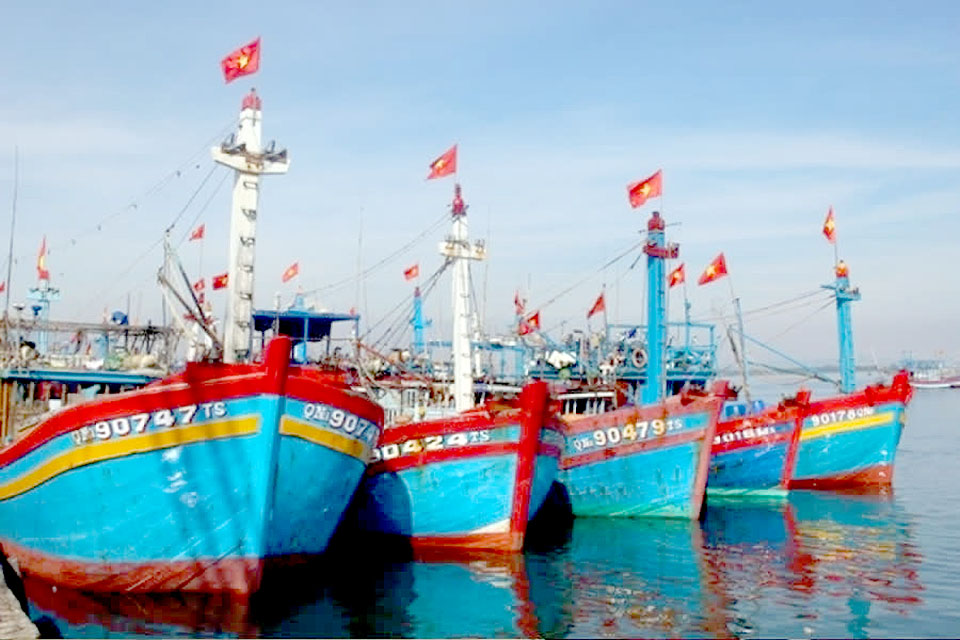
Whether the European Commission (EC) removes the “yellow card” warning for Vietnam’s seafood or not, the nation must continue its efforts to ensure people’s livelihoods and protect the marine ecological environment, serving its sustainable development whilst upholding its international responsibilities and obligations.
Vietnamese Prime Minister Pham Minh Chinh emphasized that during the conference, gathering leaders of 28 centrally run coastal localities on October 7th to prepare the necessary materials and conditions to work with the EC inspection team.
Vietnam was first issued a “yellow card” in October 2017 by the EC, which said the Southeast Asian nation had not done enough to tackle illegal, unreported, and unregulated (IUU) fishing. The imposition of the “yellow card” has negatively affected the seafood sector, the living standard of local fishermen, and the image of the country.
In spite of that, the Vietnamese Government has repeatedly affirmed that the EC’s “yellow card” warning is an opportunity for Vietnam’s fisheries sector, the business community, and fishermen to turn into responsible and sustainable fisheries.
After the issuance of the “yellow card” warning from the EC, Vietnam has been actively focusing on drastic actions as per EC’s recommendations and regulations on IUU in order to remove the warning as soon as possible. There are three groups of solutions as follows:
The first one is institutional refinement, to keep in line with international regulations, including from the EC. This group includes reviewing and supplementing legal documents and enhancing sanctions in the revised Fisheries Law, documents, and action plans of the government.
The second one is to impose strict punishments for violations, improve the enforcement capacity of the state management system and fishermen in Vietnam, and end the situation of fishing vessels engaged in illegal fishing in the waters of other countries.
The third one is to organize working sessions with fishermen to grasp problems in the process of combatting IUU fishing. In addition, the sessions are also offered to strengthen info communications and training to make the boat owners and fishermen understand about what are the measures to combat IUU fishing in practice.
After the interruption due to the Covid-19 epidemic, Vietnam’s relevant agencies as well as 28 coastal provinces and cities have now been undergoing major upgrades in a bid to get the EC’s “yellow card” warning removed.
Vietnam’s legal framework for combating IUU fishing is currently relatively complete, clearly demonstrating its commitment to sustainable, responsible fishery development and international integration. Fleet management has gradually come into order and quotes for fishing permits in the high seas, as well as inshore and offshore areas, have been allocated. Moreover, the traceability of aquatic products with a well-deployed tracking and monitoring system is considered one of the important contents to control ships at sea. Law enforcement forces at sea have stepped up patrols to prevent many fishing vessels from violating foreign waters.
In terms of regional and international cooperation, Vietnam has shown active and responsible participation in international forums and regional action plans to combat IUU fishing. Vietnam has been simultaneously ready to work with countries in the region and the international community to strengthen cooperation and share experiences in combating illegal fishing. Vietnam is now negotiating to sign similar hotlines with Thailand, Cambodia, Malaysia, and Indonesia, while effectively operating that with the Philippines, and materializing cooperation agreements in this field with Thailand, Cambodia, and the Philippines.
With the efforts, many EC officials, including Chairman of the European Parliament’s Committee on International Trade (INTA) Bernd Lange recognized Vietnam’s efforts to carry out recommendations against IUU fishing and hoped that the “yellow card” warning would be lifted soon. Bernd Lange also emphasized that it is very important to maintain and increase the durability of supply chains, ensure transparency, and avoid the risk of future crises.
The fisheries sector contributes significantly to the socio-economic development of Vietnam’s coastal communities. Seafood is one of the nation’s key export staples, bringing about US$11 billion in 2022, up 23.8% on year.
If the EC’s “yellow card” is soon removed, Vietnam will take advantage of the incentives in the EU-Vietnam Free Trade Agreement and rehabilitate the nation’s seafood industry. (NNT)






